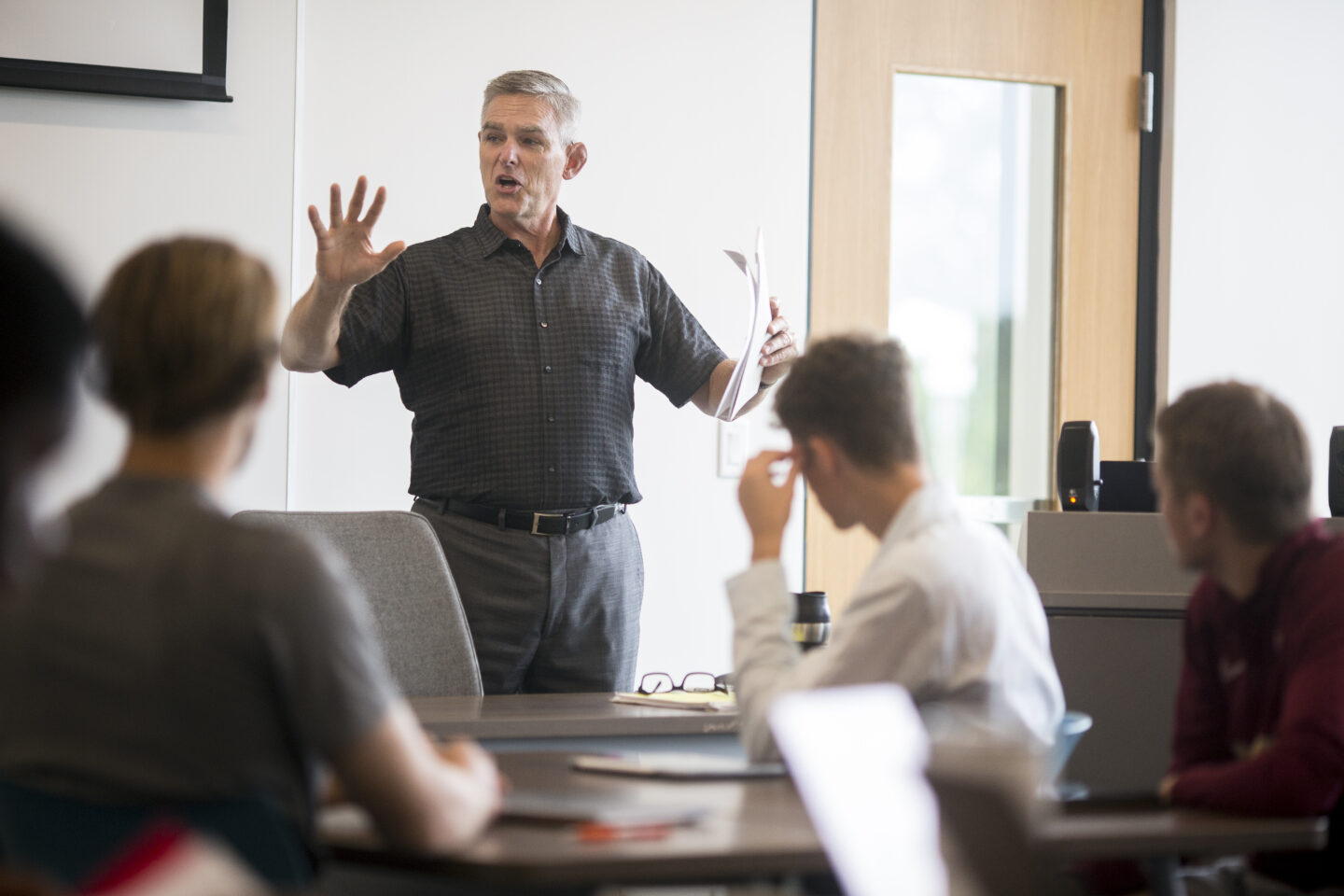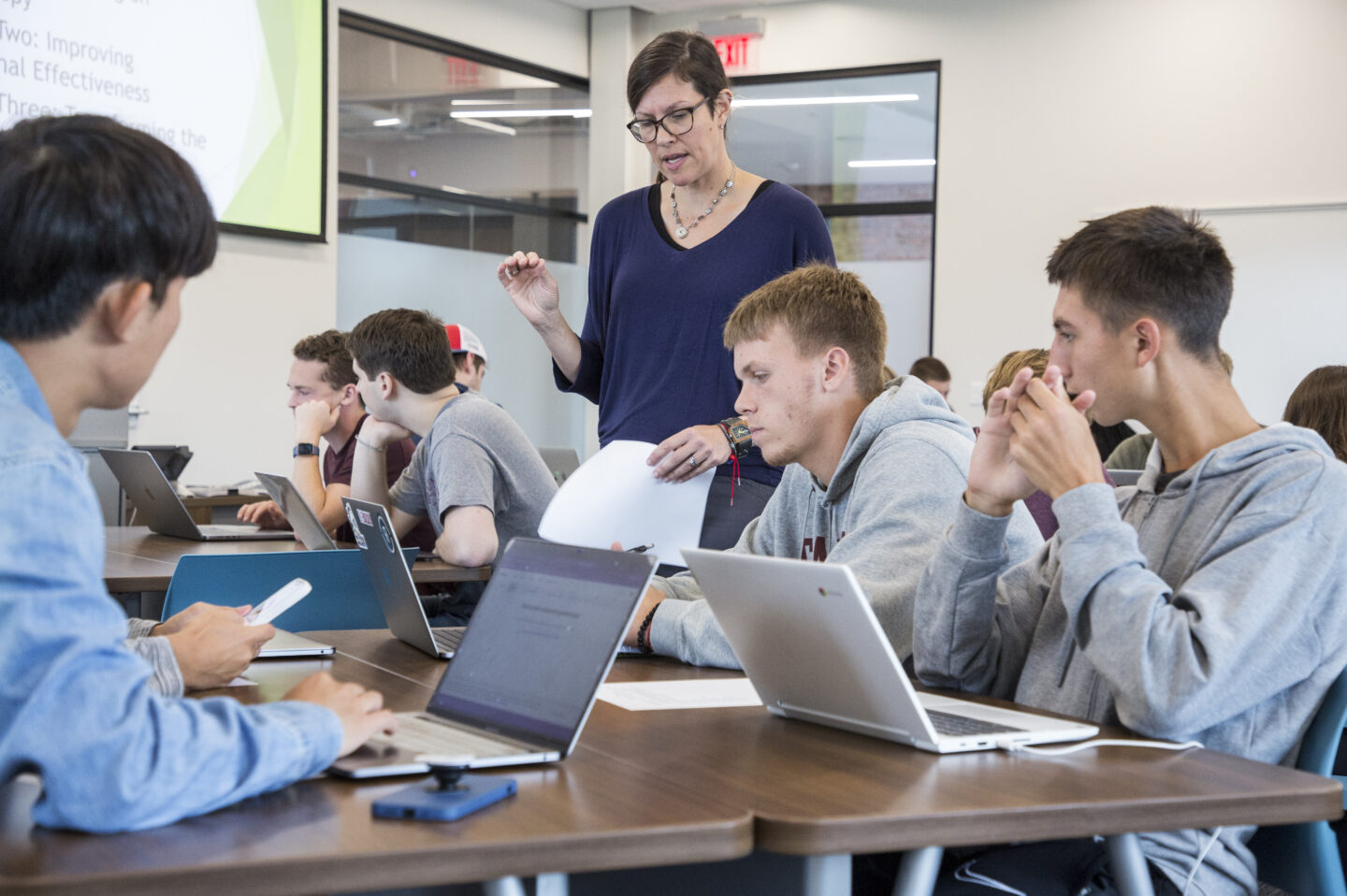Reflecting Faith courses provide high quality, easy-to-access, professional development for faculty on a variety of important topics related to faith integration in a higher education setting. When taken by groups of faculty members from an institution, Reflecting Faith courses can enhance the depth of faith integration happening in classrooms and research while strengthening institutional culture and enriching campus conversation.
We offer several models for cohort-based institutional use:

OPTION ONE: Online courses run by Reflecting Faith instructors provided by the de Vries Institute:
Reflecting Faith has a growing team of trained leaders who are adept at guiding cohorts through these courses. Along with de Vries Institute staff, these leaders will work with you to determine a schedule for the course that will work for your cohort of faculty. They walk your faculty through each step in the course, helping everyone to keep pace with the course, encouraging fruitful interaction among participants, responding to the work of participants, and providing feedback along the way.

OPTION TWO: Online or hybrid courses run by instructors/facilitations from your institution:
It is often beneficial for cohorts to be led by facilitators from their own institution. It encourages buy-in and provides additional avenues for the learning happening in the online environment to spill over into conversations and collaboration on campus. The de Vries Institute has developed a leader training process to equip your faculty leaders to serve in this capacity. This includes leaders’ guides, suggestions for effective ways to communicate with participants in the course, and support from de Vries Institute staff. Depending on the needs of your institution, the training process can happen online or in conjunction with in-person visits from de Vries Institute staff. While there are costs involved in training leaders, we are able to offer courses to cohorts of your faculty at a reduced cost when your leaders are serving as the facilitators.

OPTION THREE: Workshop versions of courses conducted by de Vries Institute staff:
The online version of these courses has proven to be an effective way to encourage faculty learning related to faith integration. Sometimes, however, institutions prefer synchronous approaches to faculty development. We offer workshops on the topics of Reflecting Faith courses. The format can vary according to your needs—in-person or online, single day or multiple-day, hybrid (e.g., a cohort does parts of a course online and other parts in gathered workshop form).
Reflecting Faith courses provide an effective and efficient way for faculty to deepen faith integration in their academic work while building qualifications related to faith and learning. Those who complete a course earn a digital badge, and those who complete five courses earn a Faith and Higher Education certificate from Calvin University. These certificates are issued through Credly, which provides convenient digital records of work and integration with various social medial platforms.
The cost for using Reflecting Faith as a professional faculty development resource is negotiated based on needs and institutional resources. Contact de Vries Institute director Matt Lundberg to discuss options.
Testimonial Quotes
Hear what several people who have participated in Reflecting Faith courses have to say about their experiences.
- Oh Yen Nie, Dean of Teachers College at Pelita Harapan University, Indonesia
“Taking a Reflecting Faith course has made me to think deeply how to connect faith in my course. To teach from a Christian perspective has been my passion, yet through the reading, discussion, and testimonies of fellow practitioners through the Reflecting Faith course have deepened and widened my understanding and practices. There is always something to learn and challenge our current practices to be more intentional in what we do as a Christian lecturer. The course setting is interactive even though delivered online. Also, since I joined the course with my colleagues, we can continue the discussion even when we have finished the course.”
- Naomi van Rijn, Ph D student, Cambridge University, UK
"Taking several Reflecting Faith courses has challenged me to engage with my research through a theological lens. The collaborative readings in these courses have not only deepened my thinking through interactions with others but also enriched my perspective through a diverse selection of texts from various global traditions. What makes these courses fantastic is their ability to strike a balance between offering rich, insightful content while remaining accommodating for busy professionals who juggle full schedules."
- Cara Brooks, Adjunct Professor at Calvin University, USA
“This course was a great experience for me as a remote adjunct - it felt like well-conducted staff development and meeting some of my colleagues all at once. I also was really pleased with how deep we went into the topic! I learned so much, and the resources brought in - from scripture, to traditional and then more contemporary readings, to video interviews with faculty - made for a really well-rounded curriculum. In the comments shared between classmates, I encountered further resources I have incorporated into one of my courses and I feel my encounters with my students will be positively impacted by what I took away from the class. I have a better understanding of how I can help to cultivate and encourage the best in them and how I am called to approach teaching as an image bearer, held to a high standard set by God, tasked with educating and stewarding other image bearers."
- Dr. Todd L. Lake, V.P. for Faith-Based Engagement & Church Relations, Belmont University, USA
“There is simply nothing else available for Christian faculty development that even begins to approach what Reflecting Faith offers. It builds community among faculty, helps them engage with Scripture and Christian thinking in fresh ways, and encourages them to take what they learn and apply it thoughtfully to how they teach. It has been enthusiastically embraced across our university as the very best way to do Christ-centered faculty development.”
